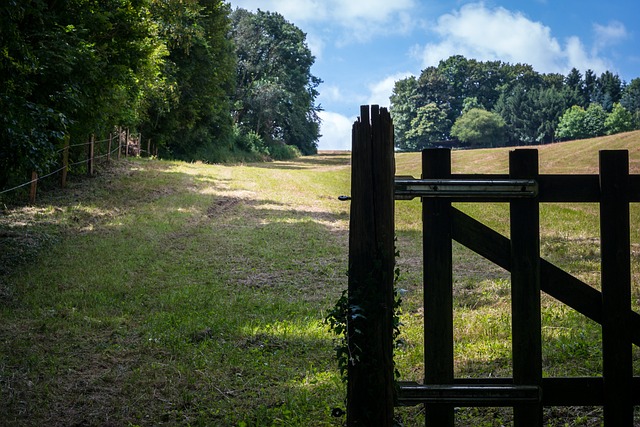In New Bedford, MA, residential fence installation is not just about enhancing curb appeal; it’s a strategic decision with practical considerations. This comprehensive guide navigates the process, from understanding your specific fence needs in New Bedford’s diverse neighborhoods to selecting the ideal company among reputable options. We explore various fence types, demystify local permits and regulations, and provide essential post-installation care tips, ensuring your new fence not only boosts security but also increases your home’s value.
- Understanding Residential Fence Needs in New Bedford
- Choosing the Right Installation Company
- The Types of Fences for Your Home
- Permits and Regulations to Know Beforehand
- Post-Installation Maintenance Tips
Understanding Residential Fence Needs in New Bedford
Residential fence installation in New Bedford involves understanding specific local needs and preferences. Homeowners here often seek fences that blend aesthetically with their neighborhoods, reflecting the diverse architectural styles prevalent in the area. Material choices are influenced by climate considerations—durable materials capable of resisting harsh weather conditions. Privacy and security are paramount concerns, leading to a demand for robust fencing solutions that can deter intruders while providing a sense of seclusion.
The varied landscape of New Bedford presents unique challenges and opportunities for fence installation. Sloped yards and diverse terrain require custom designs and installations that ensure stability and safety. Homeowners may also want to incorporate specific features like gates, dog runs, or privacy panels tailored to their individual requirements, further emphasizing the need for experienced professionals who can handle both standard and bespoke installations.
Choosing the Right Installation Company
When selecting a residential fence installation company in New Bedford, MA, it’s crucial to consider more than just the lowest quote. Quality and longevity should be your primary focus. Research their reputation, ask for references, and check online reviews to ensure they deliver on promises. Experienced companies will provide tailored solutions, use high-quality materials, and have a proven track record of satisfying customers.
Look for professionals who offer comprehensive services, from initial consultation to aftercare. This includes design advice, permit acquisition, and maintenance tips. A good company should be insured and licensed, protecting you and your property during installation. They should also be willing to work with your schedule and budget while ensuring a neat, safe, and secure fence installation.
The Types of Fences for Your Home
When considering residential fence installation, the first step is to choose from the various types available. Wood fences are a classic choice, offering natural beauty and a wide range of styles. They require regular maintenance but can be stained or painted to match your home’s exterior. Metal fences, such as iron or aluminum, provide durability and low-maintenance benefits, often featuring intricate designs that add aesthetic appeal to your property. Chain-link fences are another option, known for their strength and security, making them popular choices for backyards with children or pets.
Fences also come in different heights and styles, from modest privacy fences that block out neighbours while allowing natural light to pass through, to imposing security fences designed to deter intruders. Some homes might benefit from a split-rail fence for a rustic look, while others may opt for a more modern, sleek design with vertical posts. The choice ultimately depends on your personal style, the functionality you need, and how much upkeep you’re willing to take on.
Permits and Regulations to Know Beforehand
Before hiring any residential fence installation company in New Bedford, MA, it’s crucial to familiarize yourself with the local permits and regulations. These guidelines are designed to ensure safety, maintain property values, and protect the environment. Check with your local building department or town clerk’s office to understand what specific permits are required for your fence project. The types of fences, their height, materials used, and placement all play a role in permitting requirements.
Failure to obtain the necessary permits can lead to penalties, including fines and the potential for your fence to be removed. Some regulations also cover set-back requirements from property lines and roads, as well as restrictions on certain types of fencing materials based on historical or environmental considerations. It’s best to consult with your chosen fence installation company early in the process to ensure compliance and avoid any disruptions during construction.
Post-Installation Maintenance Tips
After your residential fence is installed, proper maintenance is key to ensure its longevity and maintain its aesthetic appeal. Regular cleaning is essential; brush or sweep debris away from the fence regularly, especially after storms or significant weather events. A soft brush or vacuum can be used for wooden fences to prevent damaging the finish.
Inspecting your fence for any signs of damage or wear is another crucial maintenance step. Look for loose pickets, rust on metal components, or cracks in concrete posts. Addressing these issues promptly will prevent them from escalating and ensure your fence remains secure and attractive for years to come.
